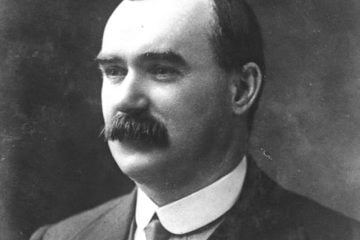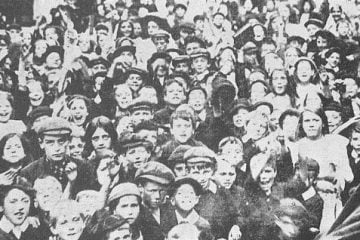The ideas of Karl Marx, summed up in writings like The Communist Manifesto and Capital, have stood the test of time. How many other books from 150 years ago are still able to interpret and explain the modern world? Most of the writings of Marx’s contemporaries are of historical interest only.
Marxism though, is not simply the practice of reading and applying Marx’s words as if they were a dogma. Marxism is, above all, a method of analysis and a guide to action. In that sense, Marxism is a philosophy – one which bases itself on the material world we see around us and on the interconnections and contradictions we see in human relations, the economy and society as a whole. This philosophy is what’s known as “dialectical materialism”.
Marx’s greatest economic discovery was that of “surplus value” – the extra wealth created by workers which is taken from them by capitalists in the form of profit. It is this which forms the basis of the class struggle under capitalism.
But, Marx says, class struggle hasn’t only existed under capitalism. The first line of the Communist Manifesto is: “the history of all hitherto existing society is the history of class struggle”. The struggle between different classes – between the possessors and the non-possessors, is the engine that has driven the development of the forces of economic production for centuries. It is this development of the forces of production that runs as a thread through all of human history.
Marx’s economic writings explain that capitalism inevitably enters into crises where the economy is capable of producing more than the market can absorb, thus causing bankruptcies and redundancies to try to reduce productive capacity.
This is the kind of crisis we face throughout the world today. And this, Marx explains, is not the product of the nastiness of politicians or capitalists – it is due to the iron logic of the capitalist system, the ideas and sympathies of individual capitalists have nothing to do with it.
The conclusion that Marx draws is that capitalism, crippled by its own internal contradictions, must be overthrown to take society forward to a new stage of economic development – socialism and communism. The class that drives forward this change must be the working class, who must adopt revolutionary methods to overthrow capitalism and build a communist society.
The theory and practice of Marxism is not confined to Marx’s writings alone. Frederick Engels, Vladimir Lenin, and Leon Trotsky all stand firmly in the Marxist tradition and their writings can teach us a lot about Marxism and its relevance to today.
As far as the Marxist Student Federation is concerned, we think that only a thorough grasp of the methods and ideas of Marxism can equip us with the understanding and determination required to overthrow capitalism. We see it as our task to spread these ideas to as many students and workers as possible. For us, Marxism isn’t dry academia but the flag under which we march towards socialist revolution.



